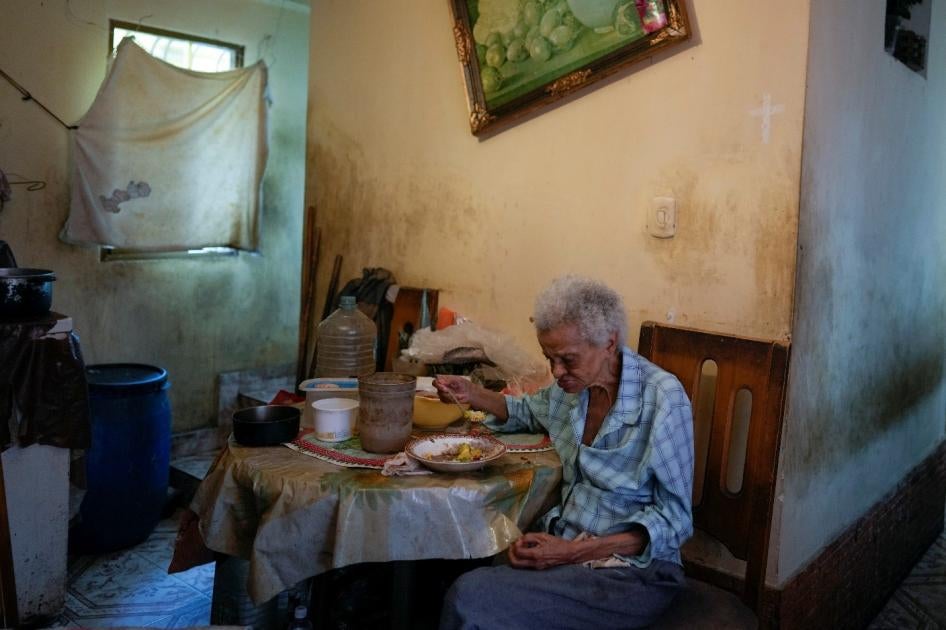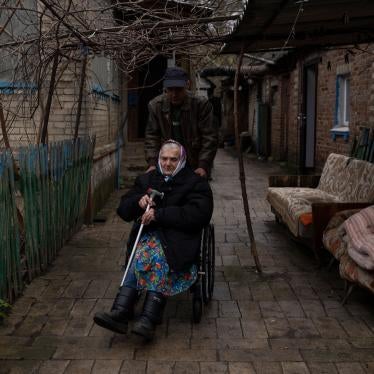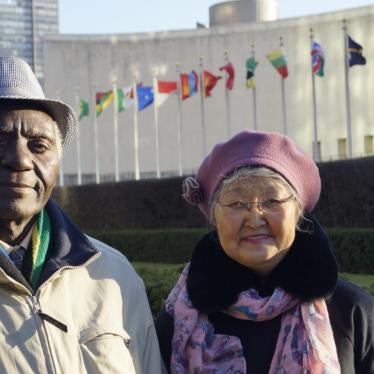The United Nations Open-ended Working Group on Ageing (OEWG) held its annual meeting on older people’s rights in April. During the meeting, the group highlighted how low income in older age can limit older people’s enjoyment of their rights, including the rights to food, health, and to live independently, and be included in the community.
For example, in Venezuela, monthly pensions for older people average 130 bolivars (about US$30), which covers less than 10 percent of a basic food basket. In the United States, older people on low incomes are often forced into institutional care as public health insurance heavily favors nursing homes over home- and community-based services. In Canada, many older people on low incomes, who are already at particular risk of heat-related illness and death, have no access to cooling. During a deadly heatwave in the province of British Columbia last year, almost 90 percent of those who died were 60 years of age or older.
At a meeting side event organized by Human Rights Watch and the Samuel Centre for Social Connectedness (SCSC), Rose Marie, an older advocate from British Colombia on a low income, said, “Governments know [rising heat] is a public health emergency, and they need to treat it as such and prioritize the support for at-risk older people and people with disabilities, not balance the budget on the backs of the most vulnerable.”
Ageist attitudes can also be exacerbated in times of crisis. During the Covid-19 pandemic, “older people have been treated as less than, even disposable, compared to their younger counterparts,” said Kim Samuel, the SCSC’s founder.
Older people have long demanded that governments uphold their international obligations by ensuring that the rights of older people are protected. Ten years ago, the UN General Assembly consulted the OEWG on creating a new human rights treaty for older people. Unfortunately, some governments continue to block such a convention. Addressing the OEWG meeting, the UN high commissioner for human rights, Michelle Bachelet, said that strengthening the human rights of older people at the international level is “an urgent imperative.”
The good news is that at this year’s meeting, the chair, Argentina, said it will work with other countries to build support to start a drafting process for a treaty. The question is whether this time governments will deliver.










